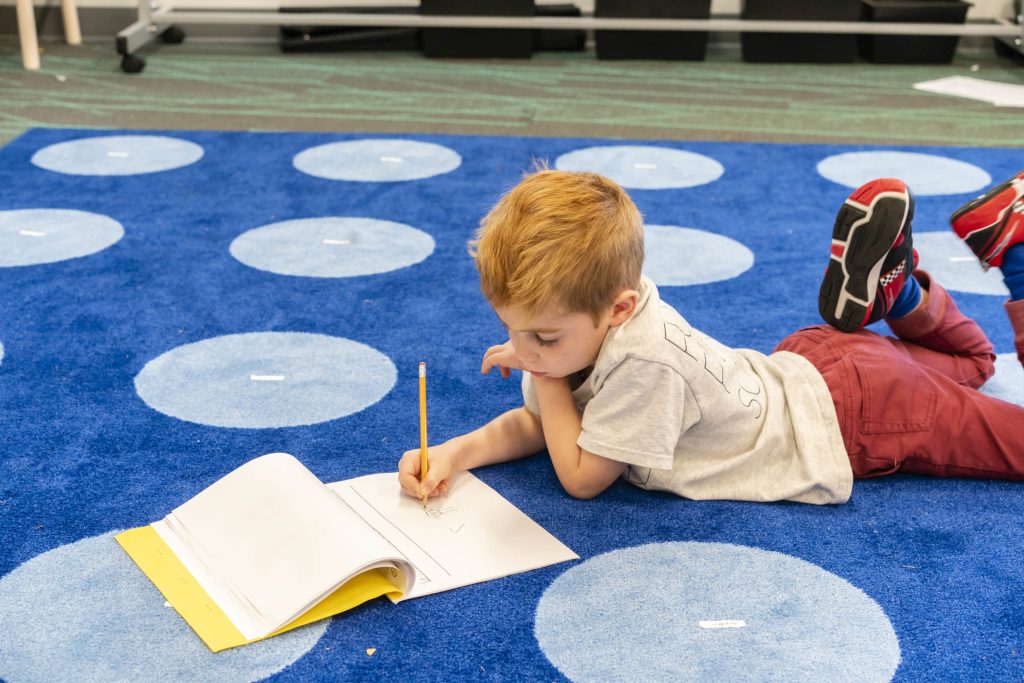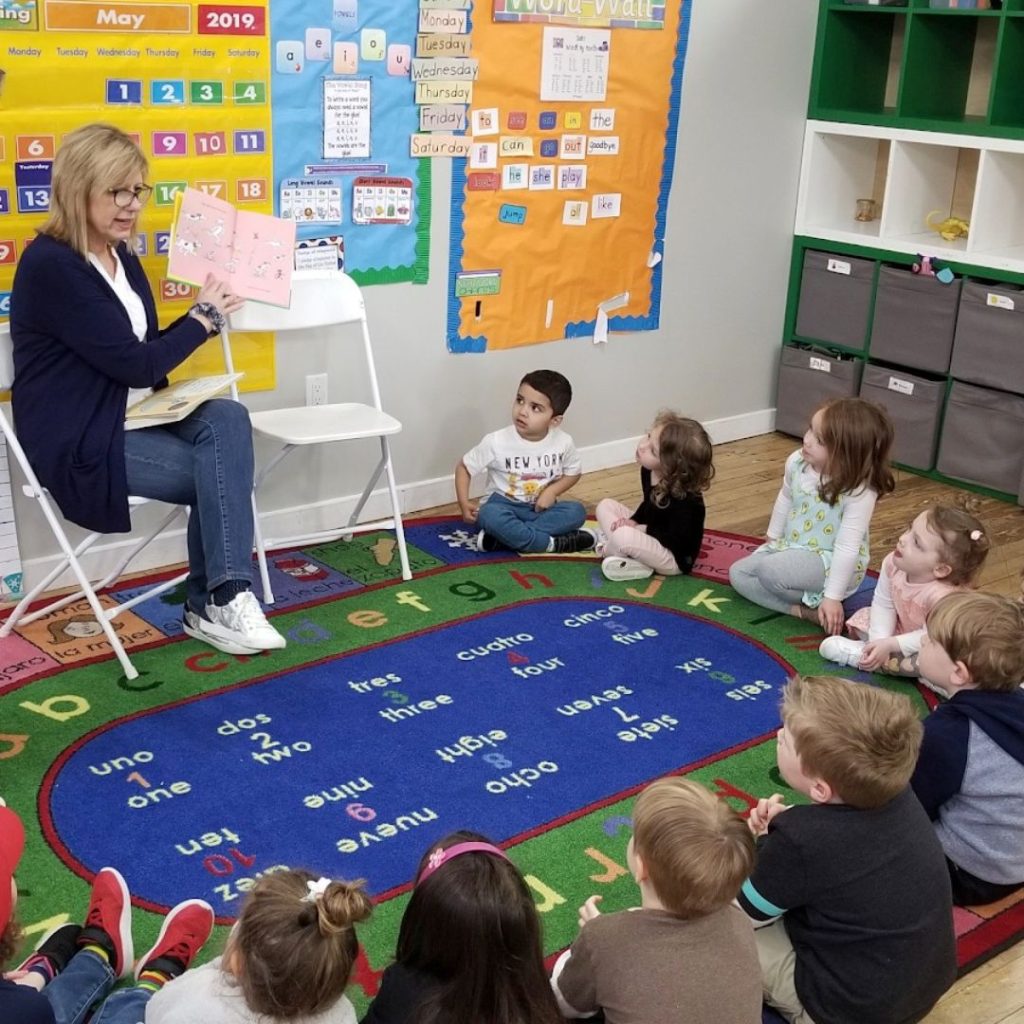
Future Public School
Kindergarten is Perfectly Imperfect, And That’s Okay
The first year of primary school is an exciting time full of growth and new

The first year of primary school is an exciting time full of growth and new experiences. But kindergarten also brings its fair share of challenges and imperfect moments – and that’s okay! Rather than seeking an idealized perfection, families can embrace the messy joy and teachable moments of kindergarten.
Understanding Expectations of Kindergarten
Today’s kindergarten is quite different than even a generation ago. Academic standards have increased and students are expected to learn foundational reading, math and social skills. This can lead parents to have heightened expectations of a flawless experience. However, even in the best kindergartens, the reality is far from perfect.
While kindergarteners are gaining independence, they still face limitations in focus, self-regulation, and social-emotional skills. Class sizes also challenge teachers to individualize instruction. Kindergarteners will inevitably make mistakes, have conflicts, and struggle at times. Viewing occasional mishaps as learning opportunities sets realistic expectations. Perfection is unattainable in even the highest quality kindergarten program.
Benefits of Imperfection in Kindergarten
The messiness of kindergarten actually provides valuable lessons that will serve students throughout their education. Making mistakes and overcoming problems teaches resilience and fosters growth. Here are key benefits of imperfection in kindergarten:
Promotes Problem-Solving Abilities
When faced with imperfect situations like peer conflict or academic struggle, kindergarteners must practice constructive problem-solving skills. This shapes their ability to handle adversity.
Builds Confidence
As they navigate difficulties and make mistakes, kindergarteners must also learn to self-advocate and overcome embarrassment. This instills confidence in their own abilities.
Teaches Flexibility
Plans in kindergarten often change unexpectedly. Learning to adapt and be flexible, even in the face of disappointment, is an essential life skill.
Encourages Help-Seeking
Kindergarteners must recognize when to seek assistance, such as from peers or teachers, when facing challenges beyond their current capability.
Fosters Self-Reflection
Imperfect experiences provide opportunities for kindergarteners to self-reflect on their actions and choices. This introspection fuels their growth.
Rather than rushing to fix every error, allowing imperfect moments empowers kindergarteners with lifelong skills.
Strategies for Navigating Common Kindergarten Imperfections

While imperfections offer learning opportunities, kindergarteners also need guidance and reassurance from caring adults. Here are constructive strategies for navigating common kinks:
Peer Conflict
- Coach compromise and empathy. Help students identify emotions and perspectives.
- Facilitate student-led conflict resolution. Let them practice restoring relationships.
- Model forgiveness and relationship repair yourself.
Academic Difficulties
- Pinpoint gaps proactively and reteach fundamentals.
- Try varied teaching approaches to accommodate learning styles.
- Instill a growth mindset. Praise effort over perceived innate ability.
Behavioral Challenges
- Reinforce clear expectations and redirect to positive behavior. Use consistency.
- Implement consequences focused on reteaching appropriate conduct. Avoid punishment.
- Collaborate with families and professionals to address persistent issues.
Social Struggles
- Foster a classroom culture of inclusion and acceptance.
- Teach strategies for initiating play and forging connections.
- Help students identify their emotions and put themselves in others’ shoes.
While disciplined effort to minimize struggles is important, periodic stumbling blocks are developmentally appropriate. With the right guidance, imperfect moments become perfect opportunities for growth.
Maintaining a Positive Outlook as a Parent
When their kindergartener faces difficulties and stress inevitably comes up, parents may understandably become disappointed or frustrated. However, maintaining an encouraging outlook focused on the bigger picture is crucial. Here are tips:
- Take a step back – Avoid overreacting. Remember setbacks are transient.
- Remain solution-focused – Minimize comparing and dwelling on the problem. Think progress over perfection.
- Model resilience – Demonstrate overcoming adversity with optimism. Your reaction is contagious.
- Validate feelings – Acknowledge if your child is upset but reframe challenges as temporary.
- Collaborate – Partner with the teacher to align on strategies rather than placing blame.
- Celebrate growth – Recognize effort and incremental improvements, not just end results.
With a balanced approach, parents can provide the empathy, reassurance and guidance kids need as they navigate imperfection.
Remembering the Joy Amid the Challenges
While striving for an idealized vision of kindergarten can lead to unnecessary stress, the vast majority of the experience brings joy. The thrill of discovery, blossoming independence, classroom celebrations, playful creativity and forming friendships fill the days with magic. When imperfect moments surface, families can re-center on the wonder and meaningful milestones.
Kindergarten plays a foundational role in setting students up for lifelong learning and social-emotional growth. But remember, childhood is not meant to be perfect. The messiness is part of the fun and learning. Through a balanced mindset focused on compassion, resilience and celebrating growth, families can embrace the perfectly imperfect, beautiful chaos that is kindergarten.
Frequently Asked Questions About Kindergarten
1. What are some typical challenges students face in kindergarten?
Common struggles include peer conflicts, trouble focusing or following directions, academic difficulties in reading/math, behavioral issues, and social adjustment problems.
2. How can parents best handle disappointments or stress related to kindergarten struggles?
Strategies include remaining solutions-focused, modeling resilience yourself, validating child’s feelings, collaborating with teacher, and celebrating small improvements.
3. Why is striving for a completely perfect kindergarten experience unrealistic?
Young kids are still developing focus, self-regulation, and social-emotional skills. Mistakes and mishaps provide important learning opportunities that are developmentally appropriate.
4. How can kindergarten teachers foster a positive environment when inevitable issues arise?
Teachers can promote a culture of inclusion, teach strategies for managing conflict, reteach skills, reinforce expectations, implement logical consequences, and highlight student strengths.
5. What are some of the major joys and milestones of kindergarten that families can focus on?
The thrill of discovery, gaining independence, play, creativity, classroom celebrations, forming friendships, and foundational academic/social growth fill kindergarten with joy.
While holding high standards, families can aim for progress over perfection in kindergarten. With the right mindset and strategies, the inevitable bumps become great growth opportunities on the path to lifelong learning.
